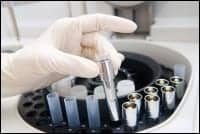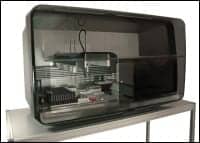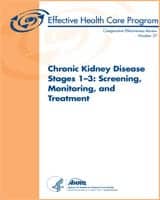
Automation products and trends are largely a result of lab needs, especially for faster, more accurate, more selective, and ultimately a cheaper resolution to clinical or microbiological needs. The latest Kalorama report (Lab Automation Markets, 2nd Edition, 2010) forecasts more than $5 billion in sales of clinical lab automation hardware and software, with a 7% growth through 2014. How has automation changed through the years, and what might be the challenges that lab managers face that lead to different trends in automation?
In order for clinical labs to be competitive, automation has now become an inherent part of operations to combat reduced reimbursement rates for tests, cost-cutting measures in hospitals and managed care, and more importantly, an alarmingly diminishing labor pool. To accomplish increasingly sophisticated tests producing vast amounts of data, automation trends have focused on easy-to-use, relatively cheaper with reduced operating costs, and less time-consuming tests. The Kalorama report also states that by using robotics in automation, a typical midsize lab that processes more than 3,000 tests can increase its volume by 20% and reduce turnaround times by 11% while saving staff salaries by time savings.
Below is an overview of automation products and trends that are helping to alleviate some of the challenges most clinical labs face today.
Microbiology Automation Trends
Norman Sharples, executive vice president, Copan Diagnostics, echoes the same concern most automation companies have toward the current status of microbiology tests. "Automation is the solution in specimen processing to reduce strain on the diminishing resources and increase in workload." He adds, "The number of graduating medical technologists is dramatically less than the number of med techs retiring every year. The consequence of this imbalance is a national shortage of skilled laboratory staff. These two factors combined means that alternative solutions must be created to deal with the impending crisis."
Copan Diagnostics, a Murietta, Calif-based company focused on innovative products in preanalytical-phase microbiology, announced the release of the optional Gram slide preparation module, an addition to its WASP® (Walk Away Specimen Processor) in March 2010. Fully designed and integrated at Copan, the automated Gram SlidePrep is designed to prepare a slide after a sample has been inoculated into plates by WASP. This automation process eliminates repetitive stress to operators, allowing staff members to be redeployed to other nonrepetitive processes, thereby increasing precision and providing faster results. The Gram SlidePrep will be launched at the American Society for Microbiology meeting in May 2010 in San Diego.

The WASP® (Walk Away Specimen Processor) from Copan Diagnostics
Gabriela Powers, global marketing manager, Copan Diagnostics, reiterates, "We are always thinking about the ‘whole solution.’ Starting out as the company that is known for its collection and transport system products in preanalytics, we are launching the Gram SlidePrep, a next step in giving a total package in preanalytics."
Histology Automation Trends
In the field of histology, the "gold" standard procedures and processes have still been in use for more than half a century. It is one discipline in the clinical lab setup where standardization of procedures has been a challenge since tissue collection, preparation, and processing appear to be technique dependent. Histology automation allows for standardization and utilization of tools for uniformity of test sizes.
Sakura Finetek USA, Torrance, Calif, offers key histology products such as Tissue-Tek® Xpress® Rapid Tissue Processors; the Tissue-Tek AutoTEC® Automated Embedding System; and the Tissue-Tek Prisma® Automated Stainer, which may be linked to either the Tissue-Tek FILM® Coverslipper or the Tissue-Tek Glas™ g2 Coverslipper.
In general, Tissue-Tek Automation, just like in microbiology automation, standardizes processes and frees up histotechs for complex tasks while expediting patient treatment. Theresa Ford, director of marketing, Sakura Finetek USA, adds, "We believe that automating processes in histology will support the anatomical pathology industry with standardization, better utilization of resources, better options for molecular diagnostic tests, and ultimately better patient care."
Automation Trends in Diagnostics/Multiplexed ELISAs
Headquartered in Waltham, Mass, Inverness Medical Innovations has taken pride in enabling patients to take charge of their health management and quality of life for decades by providing rapid point of care diagnostics while focusing on new products in infectious diseases and cardiac and oncology diseases.
Early in 2008, Inverness Medical Professional Diagnostics announced the release of the Automated Immunoassay Multiplex System (AIMS), which allows for a fully automated platform to process ELISAs (using AtheNA, the company’s comprehensive ELISA panel including HSV1/2, MMRV in infectious diseases, as well as an array of analytes in autoimmune diseases) and microplate-based diagnostics assays using Luminex® xMAP® technology as a fully integrated and open platform system.
The AtheNA Multi-Lyte® System is a multiplexed, fluorescent, bead-based system using the patented Luminex xMAP Technology. It is designed to simultaneously perform multiple assays from a single sample in one well, offering a streamlined alternative to IFA and ELISA testing. Intra-Well Calibration Technology™ provides sample-specific calibration, eliminating drift while ensuring accuracy.
The flexibility of the automation offered by Inverness is that AtheNA users can upgrade to automation by installing the reader on the AIMS platform. The AIMS system is the latest addition to the AtheNA Multi-Lyte product line, which offers one of the broadest FDA-cleared multiplexing menus in the clinical diagnostic arena. Combined with the extensive Inverness Wampole II ELISA product line, the AIMS system provides an efficient, open, fully automated solution in a multimethodology format that can accommodate clinical testing labs of any size.
According to Tedd Mishkin, vice president, marketing, clinical products, Inverness Medical, "We have arguably the largest ID and autoimmune ELISA menu that goes on instruments we offer to customers (DSX and/or DS2). We are also the only company that offers automated enteric testing for ELISA instrumentation."

The AIMS (Automated Immunoassay Multiplex System) from Inverness dent, marketing, clinical products, Inverness
The same year, the company released the DS2™ ELISA Processing System. Manufactured by Dynex Technologies, Chantilly, Va, the system is a fully automated microplate processing system for sample distribution, reagent dispensing, adding, and detection steps of microplate ELISAs for use in clinical, research, and industry. An added advantage of the DS2 is the open platform for any ELISA application.
According to Dave Kolesar, ELISA marketing manager, Inverness Medical, "Wherever possible, we use standardized reagents and procedures. This enables the user to get flexibility in assay design, a quicker turnaround time, and thus, an optimized workflow."
According to Mishkin and Kolesar, Inverness Medical is known for its innovation and leadership in medical, clinical, and diagnostics trends. The company provides open systems for increased testing flexibility along with one of the largest menus in the categories of Autoimmune and Infectious disease for both ELISA and Multiplexing technologies, and the only automated ELISA enteric testing.
"For labs, year after year the focus continues to be achieving increased automation," Mishkin says. "Automation is helped by instrumentation providing a high level of throughput, and that throughput is very dependent on the test kits that run on the equipment. The majority of Inverness Medical ELISA kits have the unique kit features that also support increased automation."
Specimen and Immunohistology Automation Trends
The only company in the industry to provide microwave tissue processors, Milestone Medical, Shelton, Conn, helps reduce workload, increase sample processing, and reduce turnaround time with a full range of manual and automated rapid microwave tissue processors. Milestone’s Pathos
Delta unit, the fully automated product in the line, brings conventional and microwave technology together. Processing times are greatly reduced while xylene-free reagents allow for reduced personnel exposure.
Since 1997, Concord, Calif-based Biocare Medical has released multiple products in immunohistochemical reagents and instrumentation. The company’s philosophy is focused on developing technologies to support diagnosis of ADH or PIN in breast and prostate cancers. A well-respected and awarded company in the histology community, Biocare is known for its intelliPATH FLX automated IHC slide-staining instrument.

Biocare’s intelliPATH FLX automated IHC slide-staining instrument
A fully flexible and open system, the intelliPATH FLX adjusts to a lab’s unpredictable workflow while its design allows for prioritizing and optimizing procedures after adding new slides. In addition, it processes STAT slides added at any time in less than 1 hour. Other features include simultaneous staining (up to five antibodies per slide), positive ID for patient slides, LIS compatibility, and easy and rapid run setup. The company states that with three runs of up to 50 slides per shift, the system processes 66% to 150% more slides when compared to 30-slide-capacity stainers.
According to Mark D. Cross, director of marketing and business development, Biocare Medical, "The intelliPATH FLX is designed to empower laboratory staff to adapt to any workflow with increased efficiency. Multiplex IHC, unparalleled throughput, fully open access, and continuous random access enable laboratories to reduce costs with maximum flexibility."
The Future of Automation
The future development of automation products is largely ruled by clinical demands, lab needs, cost of assays, and technical know-how. As more microbiologists and microbiotechnicians retire, and fewer students graduate, the loss of workforce compel automation to be directed toward helping in repetitive and precise work. Reduced funding in such tests also will accelerate cheaper and yet precise and accurate testing in automation.
In such a lopsided field of research and development, there is a need for innovation, increased training of staff, and streamlined specimen processing and assaying. According to industry experts, these trends constitute the direction of automation in the foreseeable future.
Madhushree Ghosh, PhD, is a San Diego-based science and health writer.





